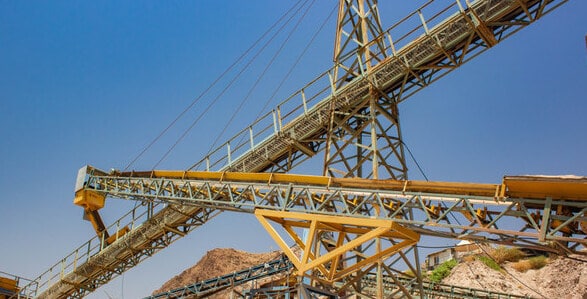Amid efforts to diversify, investments in the Saudi industrial sector have exceeded $132 billion.
Saudi Arabia has been pushing for economic diversification and reducing its reliance on oil exports. One of the key sectors targeted for growth and development is the industrial sector, and recent figures show that investments in this sector have exceeded $132 billion.
This investment has been driven by a range of factors, including government support and incentives for businesses, as well as the country’s strategic location at the crossroads of major trade routes. Saudi Arabia is also home to a large and growing domestic market, providing a ready customer base for industrial goods and services.
The Saudi government has been actively promoting the industrial sector through a range of measures, including investment in infrastructure and the establishment of specialized industrial cities and zones. These initiatives have helped to attract both local and international investors, as well as support the growth of existing industrial enterprises.
The government has also provided financial incentives and support for businesses looking to invest in the industrial sector. These include tax breaks, subsidies for energy and water, and support for research and development. In addition, the government has established a range of public-private partnerships to support the development of key industrial sectors, such as petrochemicals and renewable energy.
The success of these initiatives is reflected in the strong growth of the Saudi industrial sector over the past decade. According to data from the Saudi Arabian General Investment Authority, the sector has grown at an average annual rate of 7% since 2010, and currently accounts for around 30% of the country’s GDP.
One of the key drivers of growth in the industrial sector has been the petrochemicals industry, which is heavily reliant on Saudi Arabia’s abundant reserves of oil and gas. The country is now one of the world’s leading producers of petrochemicals, and home to some of the largest petrochemical companies in the world.
However, the Saudi government is also keen to promote the development of other industrial sectors, such as renewable energy, aerospace, and automotive manufacturing. These sectors offer opportunities for diversification and growth, and are seen as key to the country’s long-term economic success.
In particular, the Saudi government is investing heavily in renewable energy, as part of its ambitious plans to generate 50% of the country’s electricity from renewable sources by 2030. This investment is focused on developing solar and wind power projects, as well as energy storage and smart grid technologies.
The automotive sector is another key focus for the Saudi government, with plans to establish a local manufacturing industry to serve both domestic and export markets. The country has already attracted significant investment from global automakers, and is home to a growing number of local manufacturers.
The aerospace sector is also seen as a growth area, with the establishment of the Saudi Space Commission in 2018 signaling the country’s ambitions in this area. The commission is tasked with developing a national space program, and promoting the growth of the local aerospace industry.
Overall, the success of the Saudi industrial sector is crucial to the country’s economic diversification efforts, and the government’s ambitious plans for the future. The sector offers significant opportunities for growth and development, and has the potential to drive job creation and economic prosperity.
However, there are also challenges to be faced, including the need to attract and retain skilled workers, and the need to adapt to changing market conditions and evolving technologies. Nevertheless, the Saudi government’s commitment to the sector, combined with the country’s strategic advantages, suggest that the industrial sector will continue to be a key driver of economic growth and diversification in the years to come.





